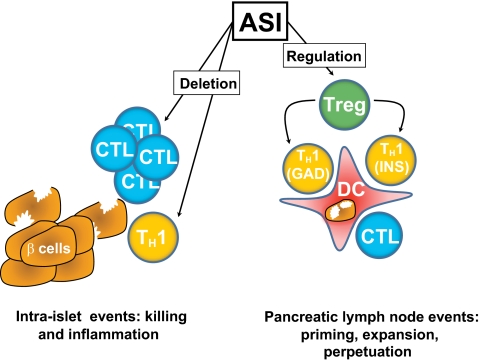FIG. 1.
Beneficial effects of antigen-specific immunotherapy (ASI) on the pathological immune responses that result in type 1 diabetes. β-cell damage is a result of the combined actions of proinflammatory helper T cells (TH1) and cytotoxic T lymphocytes (CTL), which are primed against islet autoantigens such as GAD65 (GAD) and preproinsulin (INS) by inflammatory dendritic cells (DCs). ASI has two predominant beneficial effects, namely deletion of T-cells and induction of regulation, either via priming of regulatory T-cells (Tregs) or immune deviation. The major benefit of Treg induction is linked suppression, the process by which Tregs induced to regulate in response to one autoantigen (e.g., GAD) can also regulate responses to other autoantigens (e.g., INS) presented by the same DC.

